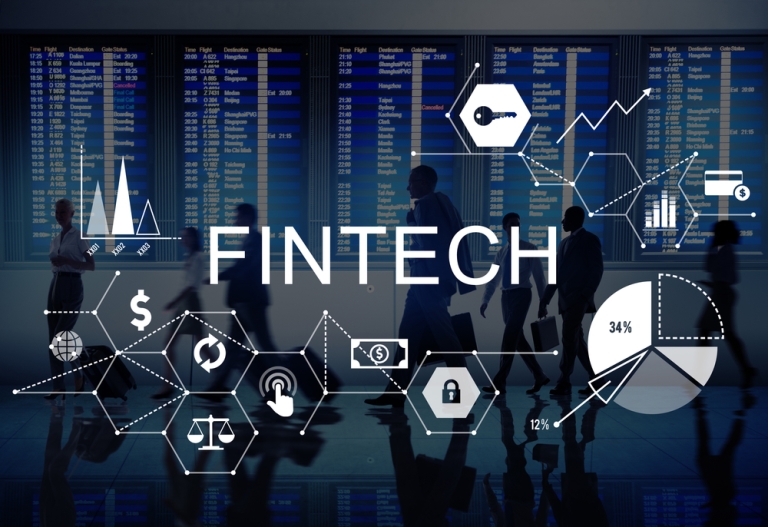How Fintech Is Transforming the Financial Industry Landscape in 2024 and Beyond

Payment Systems
For quite some timenow, paper money has been yielding ground to digital payment solutions that offer far more convenience to customers like contactless payment tools and digital wallets. The rapid adoption of cryptocurrency technology is expected to drive in major changes to the way we have been making payments. The duration, transparency, and delivery of payments systems are likely to undergo a transformational change with infrastructure enhancements, advanced payment services, and completely new fintech industry collaborations that offer non conventional user experiences. Perhaps the biggest advantage of deployment of cryptocurrencies and tokens to effect payments is that they will allow customers to move away from conventional banking and its restrictive regulations.
Blockchain
The blockchain technology has transformed the financial services industry as with it the time taken to settle transactions is now considerably reduced with customers being able to access their transferred funds in a matter of minutes rather than days and as the technology matures, financial transactions can take place in real-time. The speed of the financial transaction also means that there is less chance for someone to capture information or even divert the payment. According to https://www.inc.com, the employment of blockchain technology eliminates duplicate data and the decentralized ledger makes sure no one user has all the keys to the data. Some blockchain models employ two security keys for each transaction, which makes the data even more secure. Blockchain technology, while allowing storage of any type of data, allows it to be accessed and changed only within the restrictions imposed by pre-defined rules, which leads to improved security and transactional speed. With these efficiencies, transactional costs come down significantly.
Virtual Banking
A number of virtual banks have already started making a significant difference in how people use banking services. These banks offer only digital services and do not have any brick-and-mortar outlets. Apart from permitting customers to operate savings and current accounts, many of these digital banks offer mobile apps that are capable of monitoring spending habits, better money management, budgeting, and even some features of a credit card. Digital banking is fast becoming popular due to their sheer convenience of being available from a mobile app, speed of transaction, and absence of paperwork. Apart from conventional banks, even online lending companies like liberty lending are rapidly adopting fintech to offer better customer services.
Digital Assistants
Virtual assistants have already stepped out the home and car into the call centers operated by banks and finance companies to respond to customer queries on account maintenance and transaction fees, loan processing, opening fixed deposits, setting up savings accounts, and the entire range of non-conventional financial services that almost every bank now offers. Advanced artificial intelligence is increasingly allowing machines to take over the functions that would have otherwise to be handled by human beings. Customer service systems are increasingly being equipped with chat bots that are aimed to specifically reduce processing times, reduce the cost of operations, and increase customer loyalty. Robotic technology is being used by many banks and financial services companies to address common customer queries and handle many standard transactions round-the-clock with better efficiency. Increasingly, AML/KYC checks are also being performed by robots to check client identification and account verification for preventing fraud. Fintech companies are also demonstrating how the smart features of virtual assistants can be used by customers with more complex requirements like budgetary planning, credit scoring, management of funds, investment advice, etc.
Total Automation
The complete automation of important financial processes is among the latest trends in the fintech industry. A Capgemini report observes that intelligent automation is the combination of robotics, AI innovations, and the automation of the business processes of the financial sector. According to the report, the benefits of automation are manifold and include superior returns, enhanced opportunity of cross-selling, higher customer satisfaction, faster delivery of products and services, and better financial health in both the short and the long-term. However, despite the obvious benefits of automation, fintech companies have been generally slow to deploy automation in their processes due to a number of limiting factors. These include the reluctance of the top management, problems in compiling a comprehensive case, the lack of resources and knowledgeable specialists to ensure a successful deployment. Often the amount of data required for artificial intelligence and machine learning operations is also not sufficient.
Business Alliances
Competition looked to be inevitable between the traditional financial intermediaries and the new generation of fintech companies and indeed the struggle for market shares often leads them to clash with each other. However, in recent times, conventional banks and fintech startups have also started collaborating with each other to bring to the table services to the customer that are distinctly superior and more convenient. MasterCard, for example, has kicked off Start Path, a project that aims to assist entrepreneurs to kickstart projects in areas like banking, AI, wearable, security, biometrics, and logistics by giving them access to the MasterCard ecosystem. Increasingly, rather than reinvent the entire fintech process by themselves, traditional banks are looking to partner with established fintech companies to offer customers an optimal experience, overcome challenges, and enhance the security of financial transactions. Clearly, partner relationship management (PRM) is the wave of the future for business partnerships.
Conclusion
It is amply clear that fintech in its many forms will have a huge impact on the financial services industry and the ripple effects will percolate down to virtually every industry and sector. Many of these innovations may have an impact on the way you do business and the sooner that you can tweak your corporate strategy, the better off you will be.
























